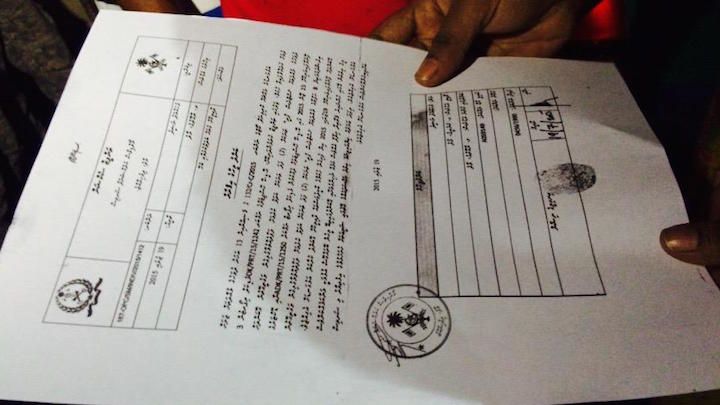Police question witnesses over disputed document on Nasheed’s house arrest
After accompanying a witness to the police headquarters last night, Mahfooz Saeed from Nasheed’s legal team told the press that the police have assured lawyers the investigation will be completed in two weeks. The witnesses were present when an officer from the Maldives Correctional Service presented the document to the former president at his residence, Maafanu Yaagoothuge, in Malé.

31 Dec 2015, 09:00
The police have questioned two witnesses over a disputed document from the prisons authority commuting former President Mohamed Nasheed’s 13-year jail sentence to house arrest.
After accompanying a witness to the police headquarters last night, Mahfooz Saeed from Nasheed’s legal team told the press that the police have assured lawyers the investigation will be completed in two weeks.
The witnesses were present when an officer from the Maldives Correctional Service presented the document to the former president at his residence, Maafanu Yaagoothuge, in Malé.
Nasheed’s lawyers contend that the opposition leader’s re-imprisonment on August 23 was illegal as the government had commuted his sentence amidst talks on political reconciliation.
Become a member
Get full access to our archive and personalise your experience.
Already a member?
Discussion
No comments yet. Be the first to share your thoughts!
No comments yet. Be the first to join the conversation!
Join the Conversation
Sign in to share your thoughts under an alias and take part in the discussion. Independent journalism thrives on open, respectful debate — your voice matters.




